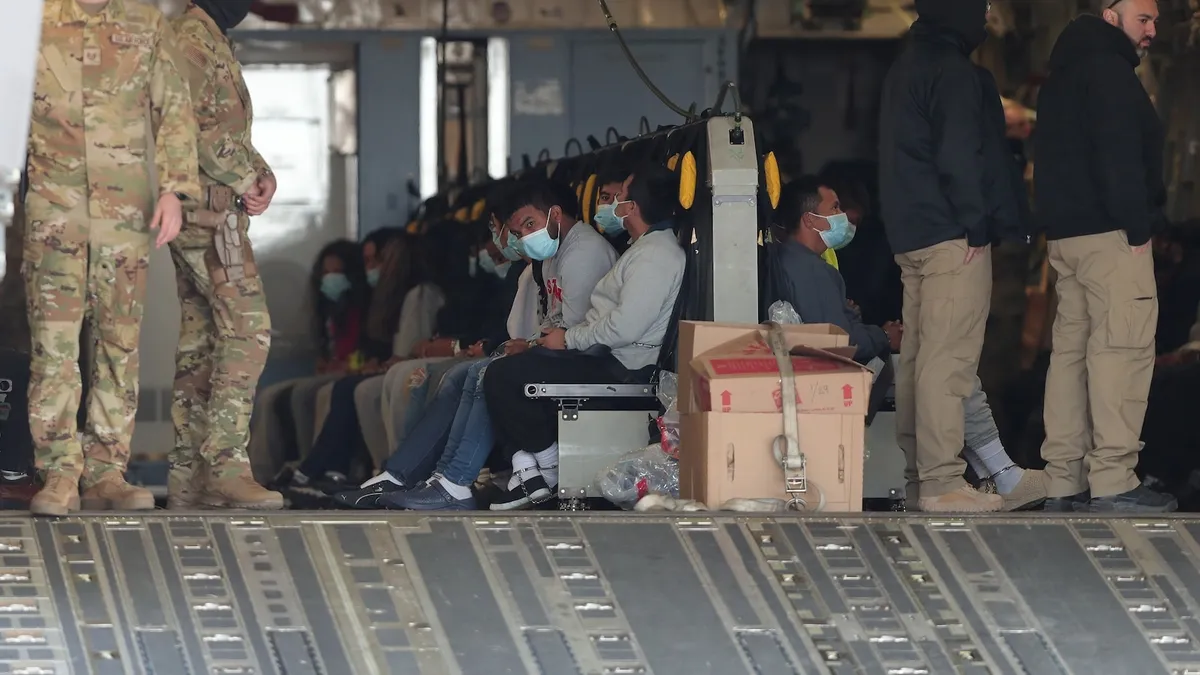
A federal judge has issued a significant ruling that temporarily blocks the Trump administration from deporting potentially hundreds of unaccompanied Guatemalan children from the United States back to Guatemala. This legal intervention comes amid rising concerns regarding the safety and rights of these vulnerable minors.
On Sunday, a judge had initially scheduled an emergency hearing at 3 p.m. regarding the deportations. However, U.S. District Judge Sparkle Sooknanan expedited the hearing to 12:30 p.m. after learning that the children were in the process of being removed from U.S. soil. In her order, Sooknanan directed the defendants to cease any ongoing efforts to transfer, repatriate, or remove any plaintiff or member of the putative class from the United States.
The putative class refers to all Guatemalan unaccompanied minors currently in the custody of the Department of Health and Human Services Office of Refugee Resettlement as of 1:02 AM on August 31, 2025, the time of the filing of the lawsuit. This group is protected under the court's order, which aims to halt any deportation attempts.
Deputy Assistant Attorney General Drew Ensign acknowledged during the hearing that it was "possible" a flight had taken off but subsequently returned. He affirmed that all children involved in the lawsuit remain under U.S. custody and that no flights would depart in light of the judge's ruling. Sooknanan further instructed the Department of Justice to submit a status report indicating when the children had safely deplaned.
Attorney Efrén Olivares, representing the children, urged the judge to maintain oversight until all minors were safely off the planes. He cited past incidents where “allegations of confusion and misunderstanding” led to significant harm for the children involved.
Sooknanan expressed skepticism over the legality of the administration's efforts to repatriate the children. She noted the unusual timing of the government's actions, stating, “We are here on a holiday weekend where I have the government attempting to remove unaccompanied minors from the country in the wee hours of the morning on a holiday weekend, which is surprising.”
Ensign defended the administration’s actions by claiming they were in compliance with the law and were conducted at the request of the Guatemalan government and the children's legal guardians. He stated, “The government of Guatemala has requested the return of these children, and all of these children have their parents or guardians in Guatemala who are requesting their return.”
Olivares strongly contested this narrative, arguing that many of the children do not have parents or guardians, and some fear returning to Guatemala due to past abuse. The National Immigration Law Center estimates that more than 600 Guatemalan children could be at risk of being forcibly returned to a country they fled from.
Sooknanan expressed concern about conflicting stories from both parties, questioning whether the repatriation efforts were genuinely aimed at reuniting families or simply returning children to a potentially harmful environment. She highlighted declarations from children who voiced their fears about going back to Guatemala, some citing experiences of abuse.
Earlier filings suggest that the Trump administration is attempting to repatriate over 600 unaccompanied Guatemalan minors in collaboration with the Guatemalan government. This action raises legal questions about the rights of these children to contest their deportations. Unaccompanied minors, defined as migrants under the age of 18 without a legal guardian, have specific protections under U.S. law.
The National Immigration Law Center has emphasized the critical need for these children to present their cases before an immigration judge, stating, “It is a dark and dangerous moment for this country when our government chooses to target orphaned 10-year-olds and denies them their most basic legal right.” Olivares reiterated the importance of upholding the constitutional and legal protections afforded to unaccompanied minors due to the unique risks they face.
The legal battles surrounding the deportation of unaccompanied Guatemalan children continue to unfold, with significant implications for both humanitarian care and immigration law. As the situation develops, advocates are determined to employ all available legal avenues to ensure the protection and rights of these vulnerable minors are upheld.